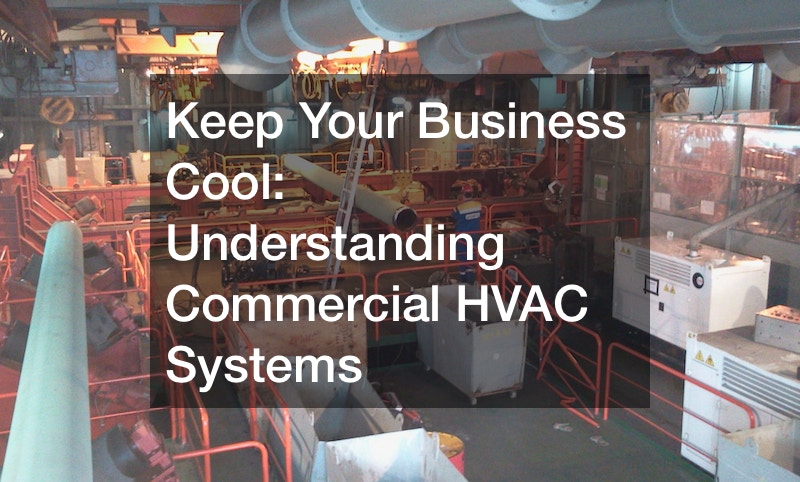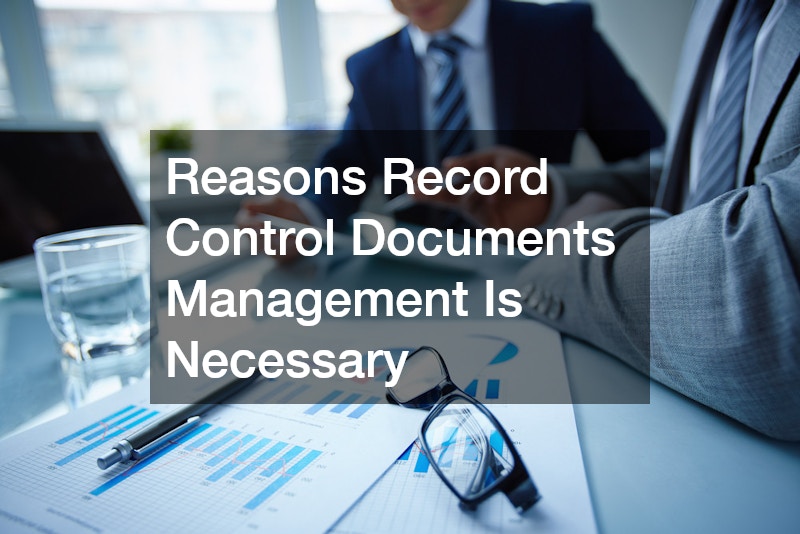
Keep Your Business Cool: Understanding Commercial HVAC Systems

Commercial heating and air conditioning (HVAC) systems are comprehensive, multifaceted configurations designed to manage and optimize the internal air quality and climate of commercial structures. For property managers, landlords, and commercial property owners, understanding commercial HVAC systems is crucial. These sophisticated systems involve a series of interconnected components that manage heating, ventilation, and air conditioning to maintain a comfortable and healthy environment within commercial spaces, ultimately enhancing the productivity and well-being of the occupants.
HVAC systems are engineered to regulate temperature, balance humidity levels, and filter air to remove contaminants, thereby ensuring optimal indoor air quality conditions. Understanding commercial HVAC systems is integral for proper maintenance, efficient operation, and longevity of the system, allowing for energy conservation and operational cost reduction. In this article, we’ll discuss everything you need to know to properly maintain and understand your commercial HVAC system.

The Importance of Commercial HVAC Systems
Understanding commercial HVAC systems is important for property owners and managers, given their vital role in providing a conducive, healthy, and productive working environment. They’re not only responsible for maintaining the desired temperature and humidity but also purifying the indoor air, thereby protecting the health of those who work at and visit the property. For commercial properties, a well-maintained HVAC system is synonymous with operational efficiency, energy conservation, and reduced operational expenses.
Anatomy of Commercial HVAC Systems
A fundamental step in understanding commercial HVAC systems is familiarizing oneself with their core components. This includes boilers, chillers, cooling towers, air handling units, and extensive ductwork, each having a unique role and function in the overall system. Getting to know each of these elements is crucial for identifying and resolving potential issues and ensuring the system’s optimal performance and longevity.
Regular inspection and maintenance of each part can prevent malfunctions and ensure the entire system operates seamlessly. Understanding commercial HVAC systems in their entirety can significantly aid in timely troubleshooting and preventive maintenance, leading to enhanced system reliability and lifespan. Furthermore, it can reduce overall costs as it prevents the need for extensive and costly repairs.
Heating and Cooling Units
Commercial HVAC systems typically employ furnaces and standard or ductless air conditioning units to manage heating and cooling respectively. These units are responsible for converting fuel or electricity into thermal energy to maintain the desired indoor temperature. Regular air conditioner services and furnace services, including inspections, cleaning, and part replacements, are crucial for ensuring the smooth operation and longevity of these units.
Employing Professional HVAC Contractors
Engaging professional HVAC contractors is essential in ensuring the efficient installation, maintenance, and repair of commercial HVAC systems. They possess the requisite expertise and experience to identify and resolve any issues that may arise promptly, ensuring that the system is in compliance with all applicable standards and operates at peak efficiency. HVAC contractors also play a role in ensuring the longevity and optimal functioning of HVAC equipment. Their knowledge and skills help you maintain the system’s reliability and efficiency, prevent potential breakdowns, and ensure safe and compliant operations. The biggest part of understanding commercial HVAC systems lies in recognizing the value of professional HVAC contractors in sustaining the system’s operational integrity.
The Importance of Regular Cleaning
Clean HVAC systems are more energy-efficient, operate more smoothly, and are less likely to break down, reducing the frequency of repairs and replacements. A clean and well-maintained HVAC system contributes significantly to the preservation of indoor air quality, ensuring a healthier and more comfortable environment for building occupants. Regular cleaning by professional HVAC cleaning services is a crucial aspect of HVAC system care that should not be overlooked.

Benefits of Periodic Cleaning
The advantages of routine professional cleaning of HVAC systems are manifold. It helps in maintaining optimal air quality, ensures unrestricted airflow, and reduces the load on the system, thus preventing premature wear and tear of components. A cleaner, well-maintained HVAC system operates more efficiently, consumes less energy, and requires fewer repairs, thereby reducing operational costs and environmental impact. By investing in regular professional cleaning services, commercial property owners can avoid costly repairs and replacements and ensure the longevity and reliability of their HVAC systems. Understanding commercial HVAC systems is about recognizing the vital role of cleanliness and maintenance in preserving system efficiency, air quality, and overall equipment lifespan.
Routine Checks and Maintenance
Checking your commercial HVAC system regularly for flaws and malfunctions can prevent you from needing to make costly repairs in the future. Your understanding of commercial HVAC systems necessitates recognizing the importance of routine checks, inspections, and the timely replacement of worn or faulty components to avoid operational disruptions and maintain a comfortable and safe indoor environment. A well-maintained HVAC system operates more efficiently, conserves energy, and reduces the risk of unexpected breakdowns and costly repairs. Regular upkeep and preventive maintenance are essential aspects of HVAC system care, ensuring the reliability and longevity of the equipment and maintaining the comfort and well-being of building occupants.
Detecting and Addressing Issues Early
As mentioned above, regular checks are the best way to prevent costly repairs but proactive maintenance goes a long way in ensuring the function and longevity of your system. Proactive maintenance involves identifying and resolving potential issues before they can escalate into significant problems. Early signs of malfunction, such as unusual noises, temperature fluctuations, and inconsistent airflow, need immediate attention. Understanding commercial HVAC systems involves developing the ability to identify these early warning signs and address them promptly to prevent extensive damage and expensive repairs.
Timely detection and resolution of issues are crucial in maintaining the operational integrity of HVAC systems. Understanding commercial HVAC systems entails recognizing the importance of quick interventions and professional repairs in preserving system efficiency, preventing major malfunctions, and avoiding unnecessary disruptions and expenses. Enlist an HVAC professional you can trust to help you keep your commercial HVAC system maintained and inspected often.

Importance of Timely Repairs
Swift and efficient repairs when things do go wrong are a critical aspect of maintaining commercial HVAC systems. Understanding commercial HVAC systems includes recognizing the importance of addressing malfunctions as soon as they are detected to prevent minor issues from becoming major, costly problems, thereby saving considerable time and resources in the long run. The immediate resolution of detected issues is crucial in minimizing downtime and maintaining the comfort of building occupants. Timely repairs not only preserve the operational integrity of the system but also prevent the escalation of issues, ensuring the continued efficiency and reliability of the HVAC equipment.
Seeking Expert Repair Services
When it comes to repairs, it’s vital to seek the services of experienced and reputable HVAC contractors. They possess the necessary knowledge, skills, and tools to accurately diagnose and repair issues, restoring the system’s functionality and efficiency promptly. Understanding commercial HVAC systems means acknowledging the role of professional repair services in maintaining the system’s operational integrity and reliability. Professional HVAC contractors ensure that repairs are conducted accurately and efficiently, preventing recurrent issues and extending the lifespan of the equipment. Their expertise is indispensable in maintaining the reliability and efficiency of HVAC systems, ensuring the continued comfort and well-being of building occupants.
When to Consider HVAC Replacement
There are situations where HVAC repairs aren’t enough and thus, replacing parts or the entire HVAC system is more economical and practical than continual repairs. Upgrading to modern, energy-efficient models can lead to substantial reductions in operational costs and enhanced system performance. Careful consideration of the system’s condition, performance, and operational costs is crucial in making informed replacement decisions. A professional HVAC contractor can help you discern when the system or its components are beyond repair and need replacement. Replacing outdated or malfunctioning equipment with newer, more efficient models can result in long-term energy and cost savings, improved system reliability, and a reduction in environmental impact.
Evaluating Replacement Options
When contemplating HVAC replacement, it’s essential to thoroughly evaluate the available options and make informed decisions. Factors such as energy efficiency, compatibility with existing systems, and size should be considered. Investing in high-quality, energy-efficient equipment can provide substantial long-term benefits, including reduced energy consumption, lower maintenance costs, and enhanced system performance.
Understanding commercial HVAC systems involves making well-informed replacement decisions to ensure the longevity, efficiency, and reliability of the new equipment. A thoughtful approach to selecting replacement options can lead to improved operational efficiency, reduced environmental impact, and long-term cost savings.
Criteria for Choosing a Heating and Air Company
Selecting a reputable heating and air company is the best way to ensure proper installation, maintenance, and repair of commercial HVAC systems. A trustworthy company will have a solid reputation, skilled technicians, and a customer-focused approach, ensuring the HVAC equipment receives the best possible care. Understanding commercial HVAC systems includes knowing how to select a company that meets these criteria and can be relied upon for consistent quality service.
A reliable heating and air company will not only offer expert installation and repair services but will also provide valuable advice and support for maintaining the system’s optimal performance and longevity. Building a long-term partnership with a reputable company ensures peace of mind and consistent quality of service, contributing to a healthier and more comfortable indoor environment.

Building Long-Term Partnerships
Establishing a long-lasting partnership with a reliable heating and air company ensures the consistent and optimal performance of the HVAC system. A trustworthy partner can provide expert advice on system maintenance and optimization, offer timely and professional services, and help extend the lifespan of the HVAC equipment. A strong, enduring partnership with a heating and air company can significantly contribute to maintaining a healthy and comfortable indoor environment. It ensures the availability of expert services when needed and provides peace of mind knowing that the HVAC system is in capable and experienced hands.
Sustainable Practices in HVAC Management
Emphasizing energy efficiency is crucial in understanding commercial HVAC systems. Implementing energy-efficient models and practices can lead to reduced energy consumption, lowered operational costs, and minimized environmental impact. Employing programmable thermostats, ensuring proper insulation, and scheduling regular maintenance are practical strategies for enhancing the energy efficiency of commercial HVAC systems.
A big part of understanding commercial HVAC systems involves recognizing the importance of sustainability in HVAC management. Sustainable practices and energy-efficient technologies contribute significantly to environmental conservation and operational cost reduction. It is crucial for commercial property owners and managers to embrace sustainable practices in HVAC management to achieve long-term economic and environmental benefits.
Embracing Green Technologies
The integration of green and sustainable technologies in commercial HVAC systems is becoming increasingly important. These technologies offer significant environmental and economic benefits, contributing to energy conservation and cost reduction. Utilizing renewable energy sources, implementing energy recovery systems, and optimizing control systems are ways commercial properties can achieve more sustainable and efficient HVAC operations. Acknowledging the role of green technologies in promoting sustainability and reducing environmental impact is vital to your understanding of commercial HVAC systems. The adoption of advanced, eco-friendly technologies can lead to improved system performance, reduced energy consumption, and substantial long-term savings, making it an essential consideration for modern commercial properties.
Final Reflections on Commercial HVAC Systems
Having a well-rounded understanding of commercial HVAC systems is indispensable for commercial property owners and managers. This knowledge is essential for making informed decisions relating to the installation, maintenance, and repair of HVAC equipment, ensuring the optimal comfort and well-being of building occupants and maximizing the operational efficiency and lifespan of the equipment. By adhering to regular maintenance schedules, employing professional cleaning services, and addressing repair needs promptly, commercial property owners can significantly extend the lifespan and enhance the efficiency of their HVAC systems. Incorporating sustainable practices and energy-efficient technologies further adds to the economic and environmental benefits. A thorough and nuanced understanding of commercial HVAC systems enables more responsible, informed, and effective management of heating, ventilation, and air conditioning in commercial settings.




